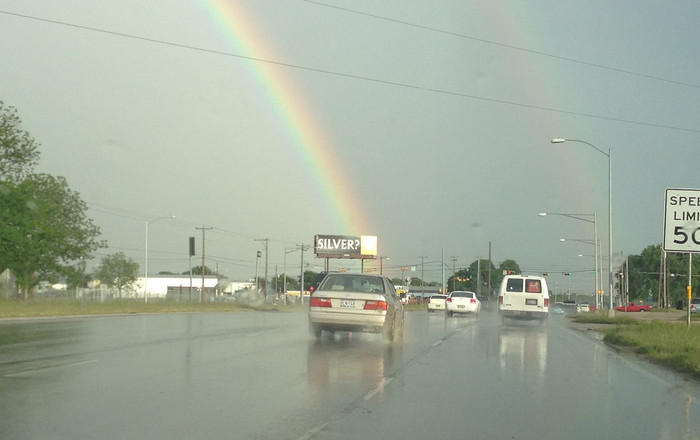May 31, 2013
IT TAKES A LOT
The Frogs - "The Benefits of AIDS (live 07/16/89)"
"...are you ready for this?"
I have a 16 year old and nothing gets through to him. Nothing sparks his interest in anything. He'll spend hours in the bathroom, and when I go in there after, the mirrors are streaked in grease. He'll go for "walks" for hours at a time, especially in the summer. He intentionally schedules his work shifts to conflict with family events, I'm sure of it. Father's Day this year was a nightmare. People say he'll get through it, or that he just needs to find something that gets him excited, but I'm starting to think that thing might be dangerous.
[out of print]
May 30, 2013
SUCH POISE

Jai Nitai Lotus - "Mingus Clap".
The Streets - "Turn the Page".
I have a thing for the opening tracks on hip-hop tapes. Intros, overtures, songs like the Streets' "Turn the Page", or "Mingus Clap", by Montreal MC Jai Nitai Lotus. It is even better if these tracks have strings, the feeling of an advancing something. An army, a chain gang, a golem in clay boots. Mike Skinner's song is grim - steady glare, clenched fists. Lotus' has more give to it, much more swing. If they faced each other in battle, I'd give it to Lotus: he's more limber, loose. Different in a boat race: Skinner wants it more. Both these songs make you root for the MC, applauding like a gathered crowd. Aerial tricks, twists and ollies - you want them to land each rhyme, nail the punchline. You want the lyrics to be as worthy as medals. You want the promise of these intros to play out over 70 minutes: foreshadowing, a diver poised over the pool, Chekhov's gun mounted on the wall.
[buy Jai Nitai Lotus' Something You Feel / buy the Streets' Original Pirate Material]
May 27, 2013
NOISESOME
Look Vibrant - "Plateau". Face-melting. Face-melting like drooping popsicle face. Like aging willow-tree face. Like Ark of the Covenant dance party. Face-melting like when the sun came out last night, across Montreal's Plateau Mont-Royal, just before dusk. Face-melting like the sour happy terror of remembering your love for a friend, your love for a kitty-cat, your love of clamouring city-soaked daylight. If you fall off your bike your head could crack open. Why do you live in a noisy place like this? Why do you live amid all these roaring cars? Why not move to the country, to the placid brookside easy-life? Why do you sit here and let your face melt, over and over again? What's the allure of the crucible, the metro station, the intersection, the concert-hall, the crowd? Do you see more colours, here? Do you really see more colours? Hello? Can you hear me? Can you even hear me? HELLO CAN YOU EVEN
[Look Vibrant released a cassingle.]
May 24, 2013
No, No, No
Blackout Beach - "Sending Postcards to a Ghost (BT)"
In the dark woods we walked toward the grove where Henry was going to eat a tree. He was 13 now and that was the year you ate a tree. The tree that had been planted at his birth, right next to Lily's and mine and little Benjamin's, looked strong in the moonlight. Mother told the story of the prophet eating a tree as an example of human's integration with nature: It is our best friend, it is our hardest enemy, it is our provider and our murderer, it is merely the hallway we pass through and yet it is all we ever see. And Henry ate. He tore pieces off, they ripped easily in his strong young hands, it often looked like he was peeling bread. He looked off, at nothing, while he chewed and sucked on the wood chips. It needed to be done very slowly. The chip needed to be saturated enough in the mouth that it could be plied apart with the tongue, that's what Father said, then he could swallow. We left him there that night and the walk back seemed like we had given up on searching for him, like Henry was lost and that we just hoped he would come back on his own. That night in bed I watched the wax form a puddle on the desk and thought if Henry survives I will give him my bicycle because he looked so sad when his broke on the rock. I didn't want to swing my head down to look at his empty bunk, it seemed like I would see something I didn't want to see.
Inside, there was plumbing, crackers, lanterns and a fishing rod. And out there, Henry ate a whole tree.
[Buy]
May 23, 2013
PORTE-FEUILLE
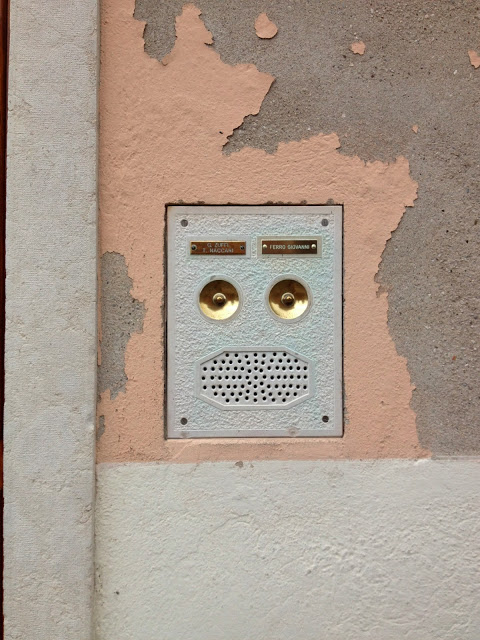
Pain-Noir - "L'Arme". I am a wallet of a thousand possibilities, shimmying in your pocket. I have coins and cards and notes and I want to send them flowering out onto counters, into palms, turning the stuff of me into new things, big and small and shiny things. I dream big. I want to slowly spin in the darkness of your pocket, envisioning fortunes, imagining riches, and then in starlight I want to buy the world. Take this, take this; give me that, and that. Trade me whatever you've got for whatever I have here. No - not bus tickets. Not dry biscuits. Give me the good stuff. I can afford it.
[For fans of Bertrand Belin, Islands, Timber Timbre / Pain-Noir is François-Régis Croisier, formerly of St. Augustine / Merci à Vincent Théval et Label Pop]
(photo by Carly Waito)
May 21, 2013
You, Essay! You, Essay!
My brain is fine, but my body has mental problems. My body is a stupid, lumbering animal. My body is silent almost all of the time, but when it speaks, it speaks in illiterate, bleating pain. My body is of two minds, the lazy and the insane. In all the history of bodies, my body is just like the rest, except one invisible notch higher, one imperceptible inch closer to something light years away. My body is a refresher course in trust. I can take a hint, body, but your hints don't make any sense.
[Buy]
May 20, 2013
BOWING RAIN
Sandy Denny - "It'll Take A Long Time". A downpour of a song - a thousand thunder and rain storms, a hundred calamities, dashed hopes, spills, a rainbow as wide as until. That's the trick of it, the bend in the river: here is such terrible sadness, such waiting, so many shades of blue; and also limitless colour, every splendid gorgeous shearing shade. The guitars and keyboards are throwing prisms in the air, pushing wind through chimes. Sandy Denny doesn't seem remotely forlorn - maybe she's drunk on love, or dazed from a sunny day. Maybe she's trying to take us to church. But this song is about the awfulest lonely stirring in all of our chests, and then about holding on. [buy]
May 17, 2013
Advice to the Young
I Am Oak - "Don't I Know Enough"
In the most unhopeless way, there is nothing you can do. Here I am, old, and saddled with regret and pain, and you are asking me for advice. I must look similar to how I feel, and you want to hear what I would do differently if I were young like you. You want to hear the warnings of the old so you can see the future, sidestep the cracks and perils and walk the edges of disaster so you can be just like you are now when you are my age. Well like I say, and do not think I am being discouraging, there is nothing you can do. Sure, eat better, less, breathe deeper, walk longer and learn to dance, but I will not tell you to let go of pain, to live the life you want and not the life others expect of you, I will not tell you this. Because you are young, your project is not finished, whereas mine is done and its holes are showing. There is nothing you can do, you will either end up like me or more likely end up like you.
May 16, 2013
AN ADVANCING RAM
Steve Mason - "Come to Me". At 11:07pm, it is pouring on rue Raspail. The pavement looks black and the few tall trees shake down a heavy, cold spray. A man runs down the sidewalk in silver sneakers. A woman hustles with her head down, clutching a gold bag. There is a thin wind. At the top of the boulevard, a battering ram begins to move. The ram is made of teak, oak and steel, reinforced with ten thousand bolts. Whoever built this spent years building it, assembling and honing, to finally arrive at this horizontal beam, a ram of unimaginable strength, which is making its way down rue Raspail. Flecks of rain slip across the wood and metal. Shadows crisscross its head. Nobody is holding the battering ram: it is in the open bed of a truck. The truck advances one block at a time. When there is a red light, it stops. A man in silver sneakers glances at the ram and runs on. A woman turns a corner. If battering rams could speak, this one would say, "Soon." [buy]
May 13, 2013
BRAVADO
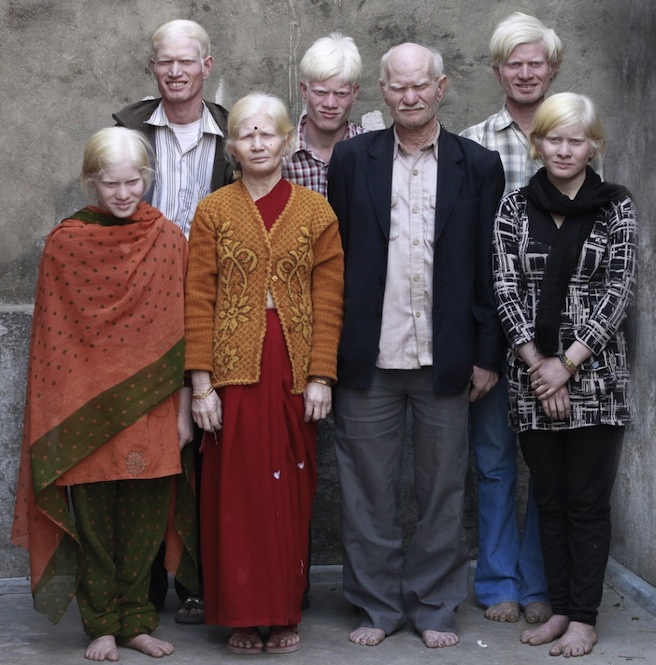
Rokia Traoré - "N'Téri". I'm visiting Paris for a couple of weeks. I have visited here before. When I was 12, when I was 22, when I was 25, when I was 28. Four visits. It is easy to be cocky. Sure, the 14ième. Oh yeah, L'As du Falafel. Why je t'en prie. I pretend I am not a tourist. I am a saucy know-it-all. I am a boss. I drink pastis and Sancerre, hop on vélib. I am tempted, for one precarious moment, to spit upon the street. But no I do not. As the second sunset settles I am reminded: Be humble. Soyez humble. You are a stranger here, a mouse, a drab visitor from faraway. You are borrowing this horizon. You are stealing this clouded sunlight. These cream pastries, these lemongrass chocolates, these cheeses and breads and wines and olives, these cobblestones - they are all gifts. We come to this place and the unsaying city says, Here. It says it without saying it. Some generosities are so matter-of-fact that you can mistake them for weather, for masonry. We travel and we are welcome: this is a privilege, do not forget; this is a windfall. Merci.
These feelings - I have been feeling them but they are also tossed up into the air, blown like dandelion seeds, by Rokia Traoré's "N'Téri". Traoré is a Malian artist, singing in Bambara, and this is from her new album. It is a gorgeous treasure of a song - seven minutes of slow waking, then the day's wakeful living. OK and then maybe the night too: the scatter of dancesteps on a clean floor, until they abruptly halt.
I walked under flowering chestnut trees; I listened to "N'Téri". In both, it was easy to be seduced. To be a boss, a saucy know-it-all. To be forgetfully comfortable in Traoré's serenade, in her song's perfect rings. But no, listen: We are guests. This is faraway music, and a gift. So generous, so generous, the playing is so generous: slow bass, a kind voice, metronome guitar, then the waking glitter of electric guitar. I feel like I have been welcomed into a garden, or a magic desert, with lines of shade and white light, rainfall and sun, restful hours. A bird crosses the sky without flapping its wings. I think, Bonjour. (The bird, too, is a gift.)
N'Téri is a word that means friend. My friend. This is a gift Traoré has given us. I hope one day to deserve the name.
[buy]
(photo is of members of Delhi's Pullan family, all of whom have albinism - source)
May 10, 2013
Loop loop
Peals - "Tiptoes in the Parlor"
Careful not to scratch the glass. Careful of the ice, it's thin like rice paper, and the edges can be sharp. Careful of people who always look perfect, careful of the wind. Careful not to promise anything to anyone, that will never land the way you think. Careful, watch, there's a candle on.
May 9, 2013
ANOTHER FRUIT MACHINE
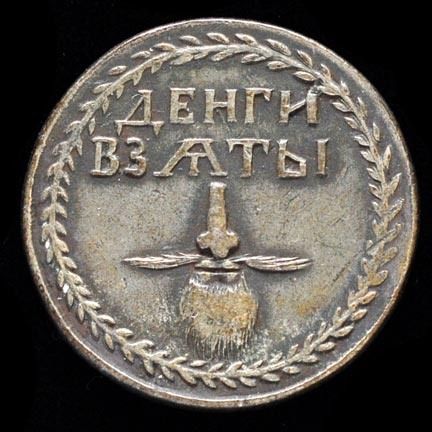
Jim Guthrie - "Taking My Time". Stray dime rolls in on its edge, stops at the end of your shoe. Take it thin between thumb and forefinger. You hold it up to the light. The thought registers: I approve of this dime. Before you have time to pocket it you see the jewelled flash of an illuminated sign. It is as if God is sending you a gaudy message. SLOT MACHINES, the sign reads. DIMES DIMES DIMES. This is a dumb coincidence, it hardly makes you smile, but the phrase "dimes dimes dimes" makes you smile, makes you repeat the words under your breath, and soon you find yourself pushing the heavy brass door and into the house of slot machines. The gambling devices clonk, whirr and bling, flexing their lights, promising loot. You hold up your dime. Just what the doctor ordered. Just what the machine requires. Down into a slot, zip cachunk, then you smack the turquoise button and watch the treasure wheels spin. Bar, Cherry... banana. That is your fate. Bar, Cherry, Banana - a sequence that is worthless, vacant, wasted. The machine swallows your coin and adjusts its flash - gives the shine and glitter a different intonation, goading or disappointed. So much for your lucky coin of serendipity. So, stupidly (stupidly! you tell yourself) you take out your wallet and dig out another dime dime dime. This is a second dime. This dime is yours. You slip it in the damn dumb machine. You push the turquoise button. You sort of hold your breath. Zip cachunk, wheel & wheel & wheel, and you think to yourself: If I am really lucky I will win a bit of patience. [buy]
May 7, 2013
LOVE ON TENNIS CT.
There are many stories from Tennis Ct, and I wish they could all be told today.
This is not, however, the story of the one-eyed dog that everyone called Ray Charles because of the way he wagged his head around.
Nor is it the story of the Philippine nanny who mysteriously took care of a different kid every week, never repeating one ever in her career.
And this is not the story of the actress who lived in 18, the big apartment with the bus shelter out front, which had a huge advertisement with her face on it that made her think thieves and rapists would now know where she lived.
This is the story of Kahn, the tall slender boy whose skin looked like a painting done with a loose wrist. Everything about Kahn looked effortless. He seemed to coast along Tennis Ct as if carried by a cloud. And he lived on that street all his life, and every day of that time, someone was in love with Kahn.
It was either Jennifer the kleptomaniac who had a penchant for pinching undies, or Therèse the bank teller who chewed more gum than anyone in history. For a while it was Benjamin, who would glance at Kahn while pretending to wash his Miata, or little Frederick who never felt anything deeper for anyone else, not even his parents or his toys so it must be love what else could it be. And eventually everyone had their turn to pine: Rita who flossed so much she had to have surgery, Nico Guzman who hated being left-handed, both Michael and Michelle who were fraternal twins and mortal enemies, everyone.
But Kahn loved none of them. Kahn was not of this world, he seemed to be in love with the great beyond, the hereafter, the next life. Perhaps that's what made him so desirable, and not his easy simple floating way, but that he seemed to know the future, and still he smiled.
May 3, 2013
THE SUFFERIST
No, I work here, you can ask anyone. I've worked here for years. Years. I've come in every day, and I've put in my blood sweat and tears, haha. Years. How long have you been here? Maybe you don't work here. I work here, dude, ask anyone. Well, when they come in in the morning you can ask them then. Don't touch me. I work here, don't I look like I work here? These just happen to be the hours that I work! That's why I have a coffee, hellooo! I've been here every day, dude, serious. No, I mean, I've been here, I don't always go inside. I don't always need to, I can work out here. Yes, I've been coming out here every day and working, so I think I'm a fucking employee, yes. See the bag? See the computer? See the printer cable? Employee. Ask anyone.
--
If you listen to this song nice and loud, you will hear my new favourite part of a thousand favourite parts: at 3:48, just as the song is already fading out, that previously unheard huge guitar that comes in? That's it for me today.
[Buy]
May 2, 2013
SECRET ADMIRER
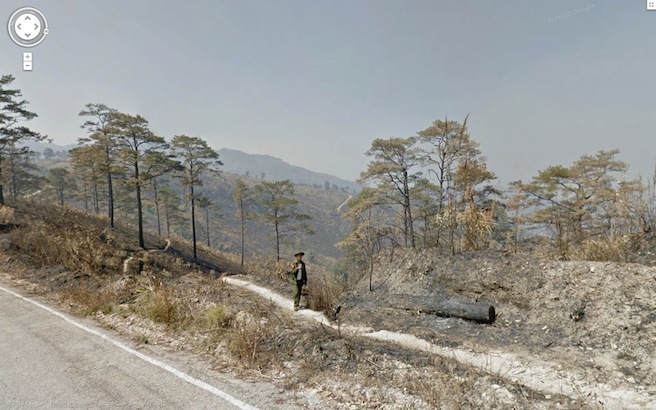
Colin Stetson - "Among the Sef (Righteous II)". Colin Stetson's third album is not the same terror or treasure that his last one was. New History Warfare Vol 2 felt mortal. It felt desperately mortal. The saxophonist's voice and breath, this unfurling force; dying as it unfurled, and striving as it died, striving & loving & hoping, clawing back the end. Stetson - a virtuoso and an athlete - made music that was suffused with vulnerability. Its weakness broke my heart into pieces.
There is little weakness to New History Warfare Vol 3, released this week. Its subtitle is To See More Light. Look at the cover: a black bird, rising from the wasteland. Listen to its songs, with Justin Vernon's hopeful croon. At times Stetson sounds threatened, or chased, but he never sounds doomed. Like the crow on the sleeve, these songs are ascendant. Their spirit seems puissant, victorious; whereas Vol 2 honoured - or at least held space for - fragility, Vol 3 is about gathering strength. Not mortality but immortality.
The result is a forceful, handsome work. Once again, Stetson weaves his compositions from endless strings of notes, arpeggios dancing across the room. He uses the rhythms of his fingers striking the saxophone's keys, the resonating hum in the horn, a roar that comes from somewhere in his chest. Vernon is an excellent companion, subtle and undaunted; with his presence, perhaps for the first time, Stetson's music gains a sense of safety. The musician calls out, or his sax calls out, and I imagine the call rippling out over the plains or the ice, like northern lights. Unlike the saxophonist's preceding work, I can imagine his call being answered. I can imagine the hymn being heard.
"Among the Sef (Righteous II)" is my favourite piece on the record. It is darting, birdlike. It flits, dives, searches. All these flickering notes, too fast to follow; the flutter of touches; the thin sound of Stetson drawing breath; then his animal voice, wordlessly lowing. I don't know if it's a prayer or a vow, and the message doesn't need to be understood. Here is a searching spirit, speaking its heart, without an audience. Like art in its purest form - a cave painting, a secret dance. A shout, a whisper, a song, for its own sake.
But this record is not often so lonely. On a later track, "What Are They Doing In Heaven Today?", Stetson and Vernon turn a song by Washington Phillips inside-out. Whereas the the original is troubled and fragile, this cover is confident, saved, like a riverside revival. I don't hear any of Phillips' lonesome, unsettled asking. Take the original lyrics, where the singer is full of questions:
What are they doing in heaven today?For that last line, the essence is its end. They say. Washington Phillips did not need to sing those words; he was a believer. He might have told us simply, as a promise, "Peace abounds like a river." But Phillips could not make this promise. He could not give us this certainty.
Where sin and sorrow are all done away?
'Peace abounds like a river,' they say.
When Vernon sings this chorus, "They say" feels like an afterthought. And the second question disappears.
What are they doing in heaven today?Such calm confidence, such serenity, over Stetson's blanket of glimmering notes. It's a beautiful reassurance.
The sin and sorrow are all done away.
But I don't believe in the reassurance. I feel shy writing this, as an acquaintance of Colin's, as someone who deeply respects and admires his work. If I hadn't been so moved by New History Warfare Vol 2, maybe I would be able to quietly love Vol 3 - to be bolstered by its impressive consolations. Maybe the stakes would not feel so high. Maybe if I were a believer, or a millionaire, or if society seemed like it was getting wiser, I would be able to take more solace in this album. I think the way you feel about To See More Light will depend on how much you believe in Stetson's reassurance, or how much you need it. I am happier in 2013 than I can remember ever having been before. But Stetson's earlier songs touched me more than all this gorgeous triumphing. I believed the laments more than the fanfares.
I'm still grateful for both.
+
Postscript, May 4: I went to see Colin last night, playing at Montreal's Sala Rossa.
"Who the Waves Are Roaring For" seemed like an Édith Piaf 45, old and rose, slowly sinking in the brine. "High Above a Grey Green Sea", questing & optimistic on the record, felt abandoned. It felt all-alone. The set was filled with shrieks and groans and the sound of shearing metal. The stage was pitted with little shipwrecks. It felt bloody. There were mistakes in the playing, hiccups and tiny failures. I guess I am trying to say it felt mortal. Stetson, so Olympian up there, also seemed so small. It was a crowded room. Sometimes, when the songs spread out like fabric, a painting of space & time in pinprick notes, like minimal techno, I was as aware of the crowd as of the man centered in spotlight. I tried to stay steady as I thought: a room full of human beings, almost all of us strangers.
If you are in Montreal, please find a way into his show tonight. Or else see him on tour this summer.
[buy]
